As rent prices hit a record high, hordes of struggling Aussies are set to be left behind in Tuesday’s budget
The budget is set to see struggling Aussies left behind, with little immediate relief for millions buckling under one particular bill.

Fed Budget
Don't miss out on the headlines from Fed Budget. Followed categories will be added to My News.
As the government prepares to hand down its new budget, hordes of Australians battling to keep a roof over their heads are set to miss out on immediate relief.
Advocacy groups say too little is being done to provide urgent support to those being hit hard by the ongoing housing crisis.
And without swift action, many will be pushed to the brink.
Maiy Azize, spokesperson for the campaign group Everybody’s Home, said the housing crisis is so extreme that even Australians with good incomes are under mounting pressure.
“Asking rents have risen by more than 75 per cent since the start of the pandemic, according to SQM Research,” Ms Azize said.
“There are other figures, like the report from the National Supply and Affordability Council, which came out last week and put the increase since Covid at more than 30 per cent.
“Any way you slice it, I don’t know anyone who’s had a 75 per cent wage increase. I don’t know anyone who’s had a 30 per cent wage increase. People are really doing it tough. They simply can’t keep up with these rent increases.”
Rent prices hit record high
The median weekly rent price across all Australian dwellings has hit a fresh record high of $627 per week, the latest data from research firm CoreLogic shows.
Across the capital cities, eye-watering costs range from $770 per week in Sydney to $547 per week in Hobart.
“Rather than rent increases being limited by affordability constraints, annual rent growth has once again started gathering pace at the start of 2024,” CoreLogic’s head of research Eliza Owen said.
“Part of the reason for the re-acceleration in rents nationally could be due to renters being forced into more affordable, peripheral housing markets as they become priced out of more desirable and central metropolitan locations.
“Areas where rents are slightly lower may offer more space for group households or have slightly less competitive conditions, which are potentially being more targeted by prospective tenants.”
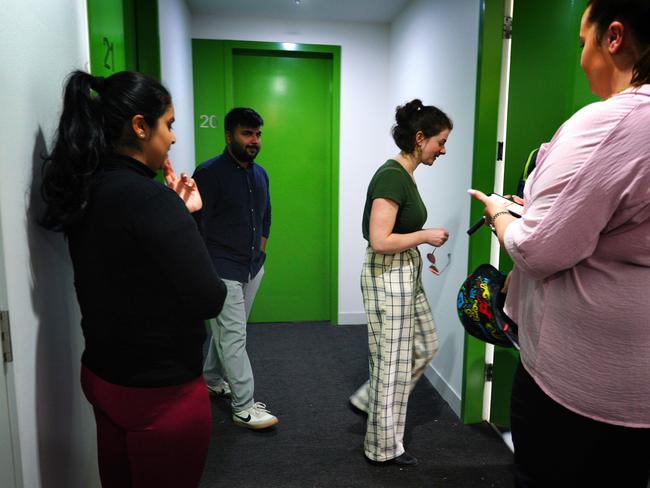
The InfoChoice Rent Crisis Survey, released in January, four 70 per cent of respondents who lease their home are in a state of housing stress.
Someone paying more than 30 per cent of their income on rent is deemed to be in housing stress. Recent research indicates low-income Aussies are spending upwards of 50 per cent of their income on housing.
Welcome surprise unlikely
Tuesday’s budget isn’t likely to contain any new measures to address the housing crisis, given the government’s current big-ticket policies were election commitments and are well in play.
Housing Minister Julie Collins told news.com.au the government has committed more than $25 billion to new housing investments over the coming decade.
“At the centre of this is an ambitious target to build 1.2 million well-located homes across the country from July 1 this year,” Ms Collins said.
Analysis of the supply plan by the Grattan Institute found it could put real downward pressure on rental prices, saving tenants $32 billion in payments to landlords over the next 10 years.
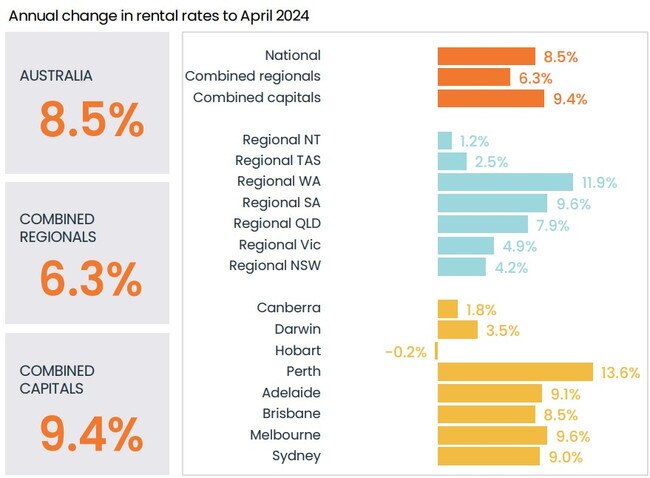
Ms Azize said the $25 billion figure “the government loves wheeling out” isn’t entirely reflective of the true investment.
“Well, $10 billion of that is an off-budget investment in the Housing Australia Future Fund. It’s cost neutral. It’s not money that they’re spending – it’s money that stays in the budget.
“That number also includes an increase in the threshold for how much the National Housing Finance Corporation, or now Housing Australia, can lend to people. It’s also not real money.
“And they’ve also packaged up within that number the housing agreements with the states, which would be enacted if we had a Coalition government.”
She also criticised the government’s commitment to build 30,000 new social housing dwellings over the next five years.
“We’re actually set to lose the same amount of social and affordable housing over the same period because they’re winding up the National Rental Affordability Scheme. So, we’re not coming out ahead.”
And Ms Azize said the government also isn’t providing enough immediate relief to people in need.
Immediate relief needed
Earlier this year, the Grattan Institute called for a more significant increase to the Commonwealth Rent Assistance (CRA) payment.
The government offered a 15 per cent boost in 2023, but the think tank believes it should be at least 40 per cent, to provide one-third of renters an extra $1000 per year.
It would cost the budget about $1.2 billion annually.
The Grattan Institute has also called on the Commonwealth to collaborate with the states to extend rental support payments to low-income tenants with hefty housing burdens who don’t currently qualify for CRA benefits.
And rent assistance should be better targeted, flowing to those who need it the most.
For example, half of younger Aussies on income support are forking out more than 50 per cent of their income on rental payments.
Ms Collins said the government’s 15 per cent boost was the biggest in almost 30 years and “is making a real difference”.
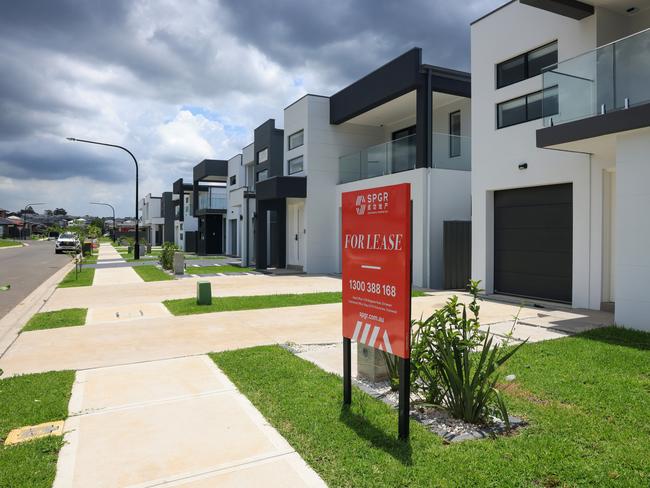
Social services groups are calling on the government to increase the base rate of the JobSeeker welfare payment.
“A Rent Assistance rise without a substantial increase to the base rates of JobSeeker and related payments is like using a bucket to extinguish a house fire,” Charmaine Crowe, program director of social security at the Australian Council of Social Services, said.
“The best way to support people on the lowest incomes to cover their basic costs, including rent, is to lift the totally inadequate rates of JobSeeker, Youth Allowance and related payments.”
Many people receiving support payments are being forced to skip meals and essential medications to try to cover the skyrocketing cost of rent, she said.
“ While Rent Assistance helps people receiving income support cover rent, less than half of people receiving JobSeeker qualify for it. Even if Rent Assistance was increased, without a substantial base rate increase for JobSeeker and related payments, it would likely do little to reduce rental stress because JobSeeker and Youth Allowance are so low.”
Ms Azize agreed, saying she’d Like to be surprised” on Tuesday night by a meaningful lift to those payments, but she’s not holding her breath.
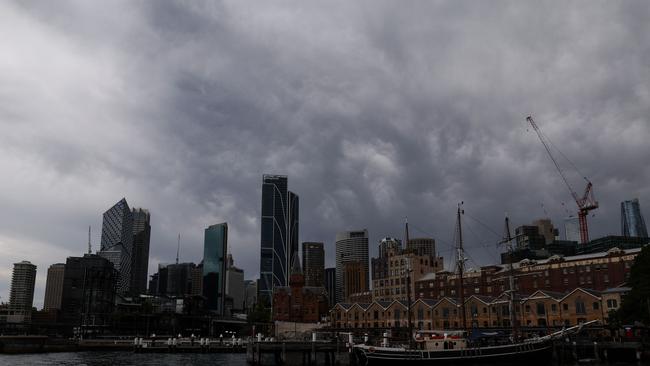
The government also missed an opportunity last year to co-ordinate with states and territories on introducing caps on rent price increases, she said.
“A lot of other countries do. Australia’s a bit of an outlier. We’re seeing the impacts of steep increases in rent prices and so if the government wanted to offer some immediate relief, they could support limits and work with state and territory ministers to get it done.”
Ms Collins said renters’ rights was something the government is committed to addressing.
“Our government is leading the way on progressing renters’ rights, having secured an agreement with state and territory leaders to work on practical steps to increase protections for renters,” she said.
“We’ll continue to work closely with state and territories, as well as the sector, to ensure more Australians to have a safe and affordable place to call home.”
All in on supply
The government is putting much of its focus on housing policy on dramatically increasing supply, which economists agree will help ease pressures.
“At a federal level, our focus is on improving housing supply, because this is the best way to improve housing affordability for renters and buyers,” Ms Collins said.
“More homes mean more affordable options for everyone – whether they’re buying, renting or needing a safe space for the night.”
One measure that will be in the budget, which the government has already announced, is a $90.6 million commitment to boost the number of skilled workers in the construction sector.
It includes measures to help attract more apprentices, fee-free training, streamlined visa programs for foreign in-demand trades, and an education and awareness program to assist migrant workers navigate complex process.
Housing Industry Association managing director Jocelyn Martin said the government’s goal of building 1.2 million new dwellings in the next five years hinges on an adequate supply of skilled workers.
“It is therefore pleasing to see the budget commitment to start to address these skills shortages in our sector as well as the recognition of this as a key area of governments focus going forward,” Ms Martin said.
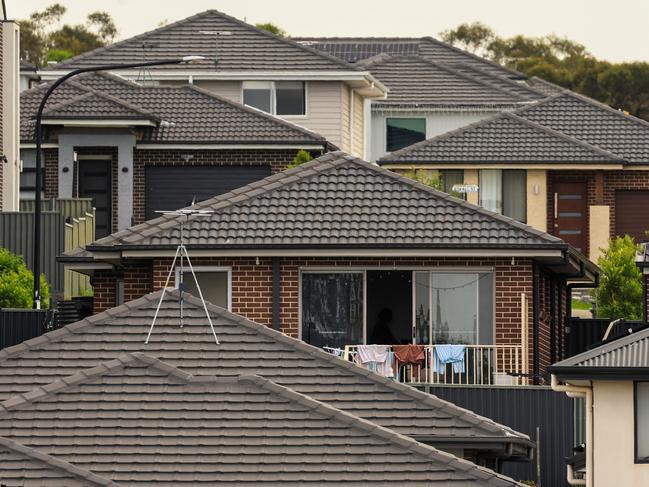
“We recognise the challenges brought about by the lack of skills won’t be fixed overnight but it’s encouraging to see dedicated Government funding to help bring more workers into the industry.”
However, Rachel Ong ViforJ, an Australian Research Council Future Fellow and economics professor at Curtin University, said supply is only part of the solution.
“There is also a need to respond to the supercharged demand in the property market,” Professor ViforJ wrote in analysis for The Conversation.
“An overheated market will undoubtedly place intense pressure on the rental sector because aspiring first home buyers are forced to rent for longer, as house prices soar at a rate unmatched by their wages.
“Yet, governments continue to resist calls for winding back the generous tax concessions enjoyed by multi-property owners.”
Winding back negative gearing provisions and capital gains discounts for property investors would eventually help ease affordability pressures on low-income renters by converting those tenants on higher incomes into homeowners.
Originally published as As rent prices hit a record high, hordes of struggling Aussies are set to be left behind in Tuesday’s budget



